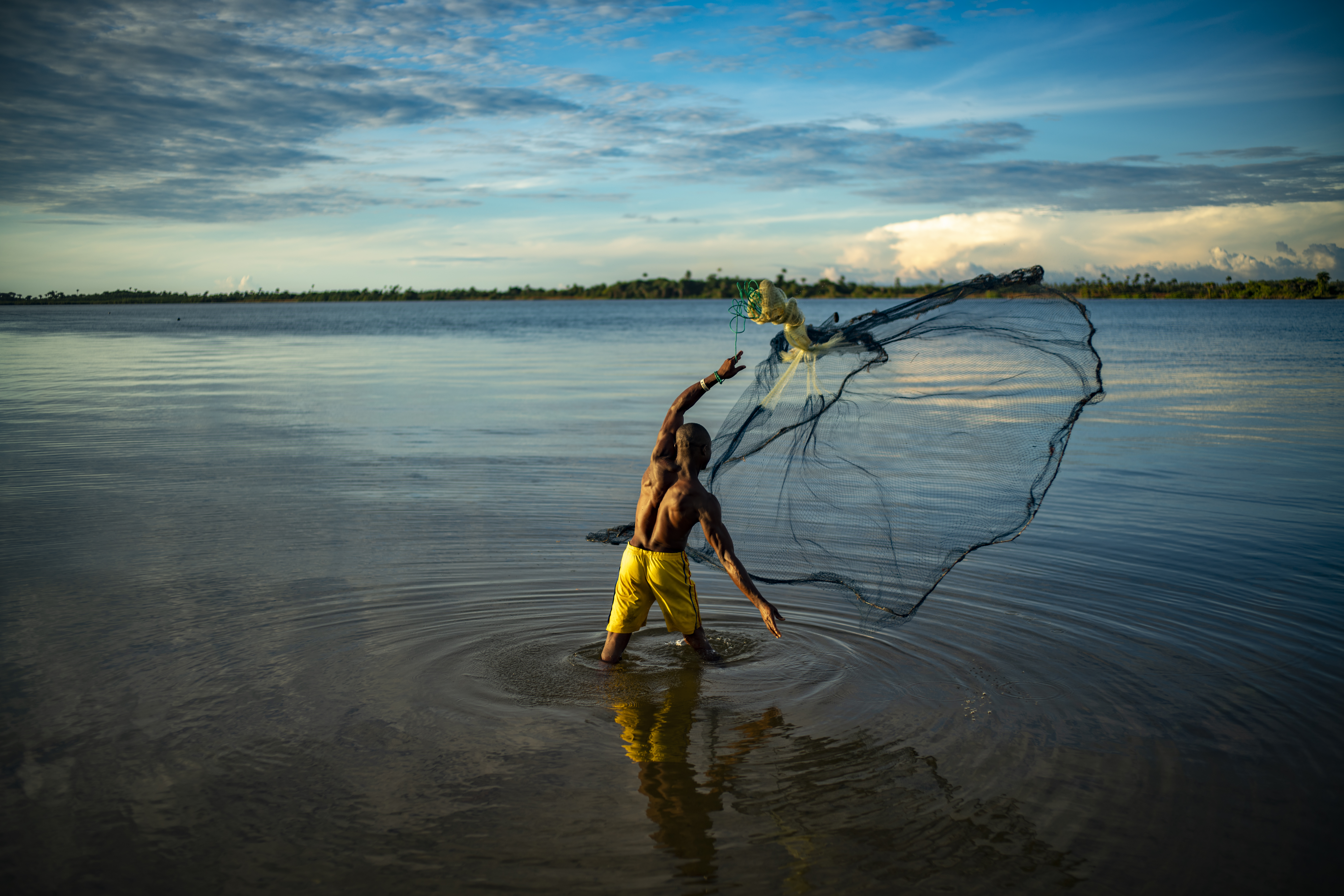
Catalyzing Change: CI's New Role in the GEF Small Grants Program
December 20, 2024
At Conservation International (CI), we have worked to secure the essential resources and benefits provided by the environment for the betterment of humanity. Through our work, we have looked towards sustainable partnerships and the supportive threads of community collaboration. That is why we look forward to making further progress on this path by serving as an Implementing Agency for the expanded Global Environment Facility’s (GEF’s) Small Grants Program (SGP) alongside the Food and Agriculture Organization (FAO) and the United Nations Development Programme (UNDP).
The SGP’s mission aligns with the philosophy of CI; to bring together diverse stakeholders, from civil society, to Indigenous people and local communities, to addressing pressing environmental challenges. For CI, this is not just only funding projects, but about catalyzing transformations, building capacities, and creating resilient systems that endure beyond the life of a grant.
Building on a Legacy of Impact: CEPF’s Role
At the heart of our approach to SGP 2.0 is the integration of lessons and expertise from the Critical Ecosystem Partnership Fund (CEPF). Since its inception in 2000, CEPF has supported over 2,700 civil society organizations (CSOs) in conserving biodiversity hotspots across 112 countries, with over $418 million in resources mobilized. CI was one of the co-founders of CEPF along with the GEF and the World Bank. It hosts the CEPF Secretariat and is one of the fund's seven global donors, along with l’Agence Française de Développement, the European Union, Fondation Hans Wilsdorf, the GEF, the Government of Japan and the World Bank.
CEPF’s well-established grant-making model emphasizes transparency, inclusivity, and efficiency, and will be one delivery mechanism of our new expanision in SGP.
Here’s how CI and CEPF will support and enhance SGP:
Biodiversity Hotspot Synergies:
CEPF will build its 25 years of experience in conserving biodiversity hotspots to be part of the successful implementation of SGP. CI’s SGP grants will aim to capitalize on the methodology of CEPF grant-making, including using CEPF’s ecosystem profiles—stakeholder-driven analyses of the hotspots’ biodiversity and socio-economic conditions that serve as regional conservation strategies. This approach will ensure that grant-making priorities are demand-driven and contribute to global biodiversity goals.
Regional Implementation Teams (RITs):
CEPF’s hotspot-based RITs will play a crucial role in implementing SGP. These teams will work directly with CSOs to facilitate grant-making, build local capacity, and ensure projects align with both local and global conservation priorities. In countries where RITs are not present, CEPF’s Secretariat will support implementation through dedicated national coordinators.
Capacity Building and Pathways for Growth:
CEPF’s approach that combines biodiversity conservation with CSO capacity building will be central to SGP. Small grants will serve as entry points for local organizations, with targeted training and mentoring programs helping them develop the skills and networks needed to scale their impact. For many grantees, SGP will be a stepping stone to larger, long-term grants from public funders, creating a seamless pathway for growth.
Innovative Tools and Technology:
CEPF’s grantee platform will serve as the backbone for managing SGP grants. This system, available in local languages, will streamline application, reporting, and monitoring processes, ensuring accessibility for grassroots organizations.
Inclusive Grant-Making:
CEPF has a proven track record of engaging women, youth, and marginalized groups in conservation. For SGP, CEPF will establish a dedicated funding window for projects that are led by youth, apply socially inclusive practices, and ensure equitable access to grants for diverse stakeholders.
RITs and national coordinators will act as catalysts, helping grantees connect with local governments, private sector stakeholders, and other CSOs to amplify their impact. CEPF’s emphasis on collaboration aim to foster networks of organizations capable of scaling solutions and influencing policy at national and regional levels.
Through CEPF, CI has seen how supporting women, youth, and marginalized communities leads to stronger and more sustainable activities. Whether it’s training Indigenous leaders to negotiate for their rights or developing conservation-compatible livelihoods for rural communities, we want to ensure that the voices of those closest to nature are heard and valued.
“Conservation International is honored to bring its decades of experience in community-driven conservation to the Small Grants Program as a new Implementing Agency,” says Orissa Samaroo, Vice President of the CI-GEF Agency. “Through the CI-GEF Agency and the Critical Ecosystem Partnership Fund, we are excited to leverage our innovative and inclusive approaches to enhance SGP, ensuring it reaches the world’s most biodiverse and vulnerable regions while driving sustainable solutions that support those closest to nature.”
The Road Ahead
The challenges of climate change and biodiversity loss require bold action and collaborative effort. With CEPF’s robust framework and decades of experience, we hope our contributions to SGP will be a powerful tool for communities, protecting biodiversity, and advancing global sustainability goals.
Learn more about the GEF's Small Grants Program and its work here: https://www.thegef.org/newsroom/news/spotlight-gef-small-grants-programs-new-phase